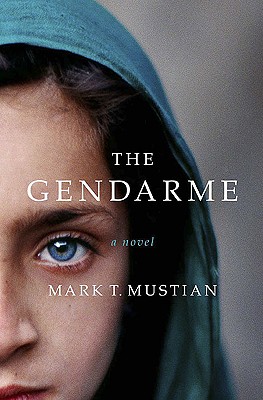Earlier this month,
Peter Carey,
Emma Donoghue,
Damon Galgut,
Howard Jacobson,
Andrea Levy and
Tom McCarthy were announced as the six shortlisted authors for the 2010 Man Booker Prize for Fiction. For over four decades the prize - the leading literary award in the English speaking world - has brought recognition, reward and readership to the outstanding new novels of the year. The shortlist was announced by Chair of judges, Sir Andrew Motion, at a press conference held at Man's London headquarters.

* Peter Carey »
Parrot and Olivier in America »
Faber & Faber
From the two-time Booker Prize, winning author comes an irrepressibly funny new novel set in early nineteenth-century America. Olivier, an improvisation on the life of Alexis de Tocqueville, is the traumatized child of aristocratic survivors of the French Revolution. Parrot is the motherless son of an itinerant English printer. They are born on different sides of history, but their lives will be connected by an enigmatic one-armed marquis.

* Emma Donoghue »
Room »
Picador
To five-year-old Jack, Room is the entire world. It is where he was born and grew up; it's where he lives with his Ma as they learn and read and eat and sleep and play. At night, his Ma shuts him safely in the wardrobe, where he is meant to be asleep when Old Nick visits.

* Damon Galgut »
In a Strange Room »
Grove Atlantic
A young man takes three journeys, through Greece, India and Africa. He travels lightly, simply. To those who travel with him and those whom he meets on the way - including a handsome, enigmatic stranger, a group of careless backpackers and a woman on the edge - he is the Follower, the Lover and the Guardian.

* Howard Jacobson »
The Finkler Question »
Bloomsbury
He should have seen it coming. His life had been one mishap after another. So he should have been prepared for this one'. Julian Treslove, a professionally unspectacular and disappointed BBC worker, and Sam Finkler, a popular Jewish philosopher, writer and television personality, are old school friends.

* Andrea Levy »
The Long Song »
Headline Review
The author of Small Island tells the story of the last turbulent years of slavery and the early years of freedom in nineteenth-century Jamaica. Told in the irresistibly willful and intimate voice of Miss July, with some editorial assistance from her son, Thomas, The Long Song is at once defiant, funny, and shocking. The child of a field slave on the Amity sugar plantation, July lives with her mother until Mrs. Caroline Mortimer, a recently transplanted English widow, decides to move her into the great house and rename her 'Marguerite.' Resourceful and mischievous, July soon becomes indispensable to her mistress. Together they live through the bloody Baptist war, followed by the violent and chaotic end of slavery. Taught to read and write so that she can help her mistress run the business, July remains bound to the plantation despite her freedom. It is the arrival of a young English overseer, Robert Goodwin, that will dramatically change life in the great house for both July and her mistress. Prompted and provoked by her son's persistent questioning, July's resilience and heartbreak are gradually revealed in this extraordinarily powerful story of slavery, revolution.

* Tom McCarthy »
C »
Jonathan Cape
Opening in England at the turn of the twentieth century, C is the story of a boy named Serge Carrefax, whose father spends his time experimenting with wireless communication while running a school for deaf children. Serge grows up amid the noise and silence with his brilliant but troubled older sister, Sophie: an intense sibling relationship that stays with him as he heads off into an equally troubled larger world.
Books that are currently available may be purchased online at Paragraphs by clicking on the title link. We also carry most of these titles at the store.













